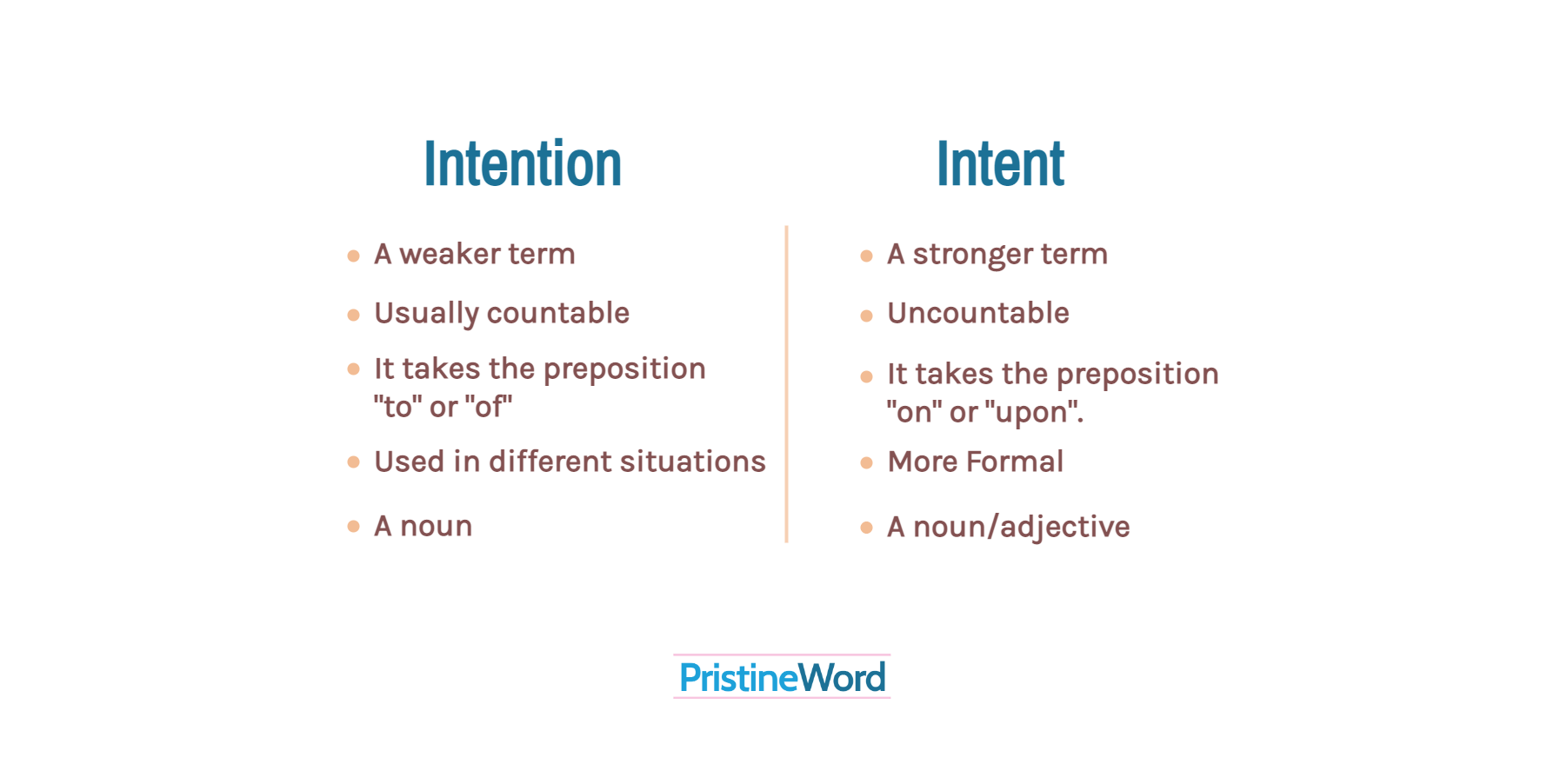"Intention" and "intent" have a similar meaning and are interchangeable in many situations. In some contexts, however, their meaning is slightly different.
"Intention" and "intent" have a similar meaning and are interchangeable in many situations.
It was not her intent/intention to deny the value of informal education.
In some contexts, however, their meaning is slightly different.
Stronger vs. Weaker
"Intent" denotes a stronger mindset. It implies deliberate planning or the active application of a will. "Intention" is usually a weaker term that suggests mere ambition.
Patricia was found guilty of wounding with intent.
The manager is full of good intentions that won’t be carried out.
Countable vs. Uncountable
Another difference between these two words is that "intent" is uncountable, whereas intention is usually countable. In other words, the noun "intent" cannot be counted and cannot be made plural. You can have a list of intentions.
His intent was obvious, but James decided to play dumb.
This is my list of intentions to change my life
Prepositions
Generally, these two words take different prepositions. "Intention" takes "to" or "of".
It was not her intention to cause any offense.
He did it with the intention of improving his English.
"Intent" usually takes "on" or "upon".
Jennifer was intent on pursuing a career in business.
But you can use the construction "with intent to do something", which is fairly frequent in legal contexts.
James was charged with possession of a gun with intent to commit a robbery
Formality
"Intent" is used in more formal contexts, such as in legal language. "Intention" can be used in a wider range of situations, including formal and semiformal language.
They went there with the intent of stealing something of value
Mary went into town with the intention of visiting the museum.
Adjectives and Nouns
"Intention" is a noun whereas, "intent" can be an adjective or a noun. Thus, you can be intent of becoming an engineer.
I met an engaging man with an intent gaze.

